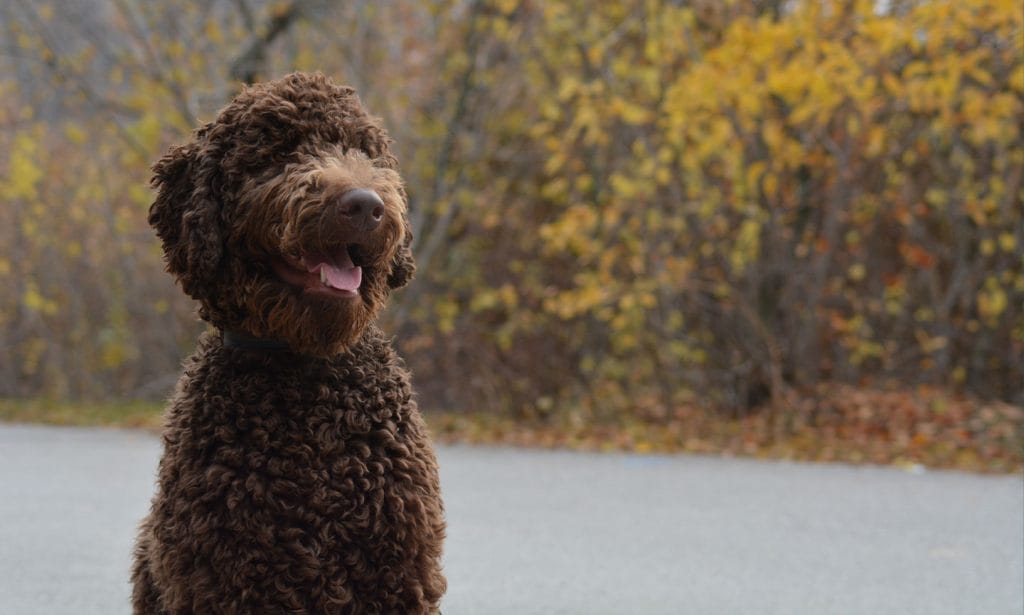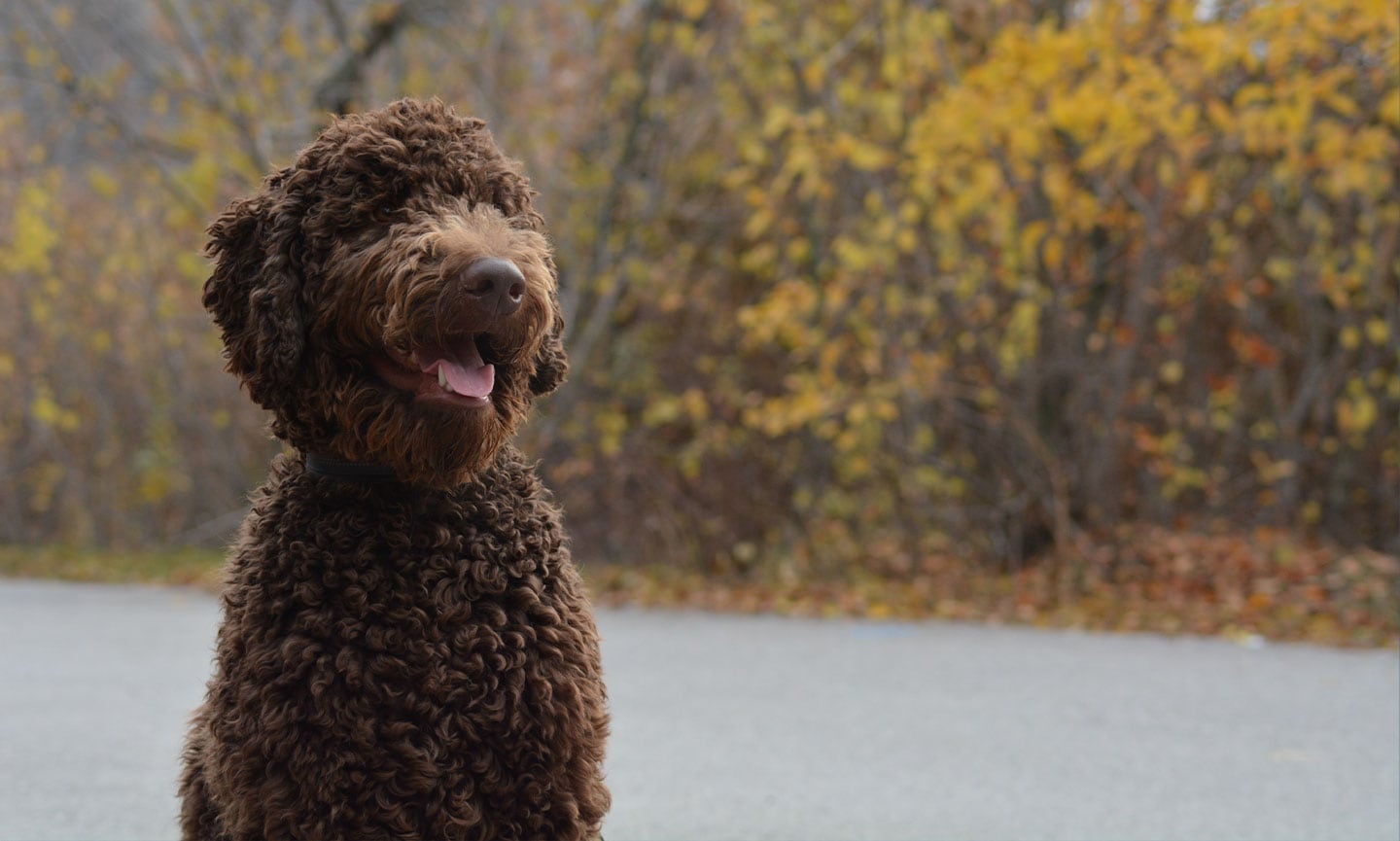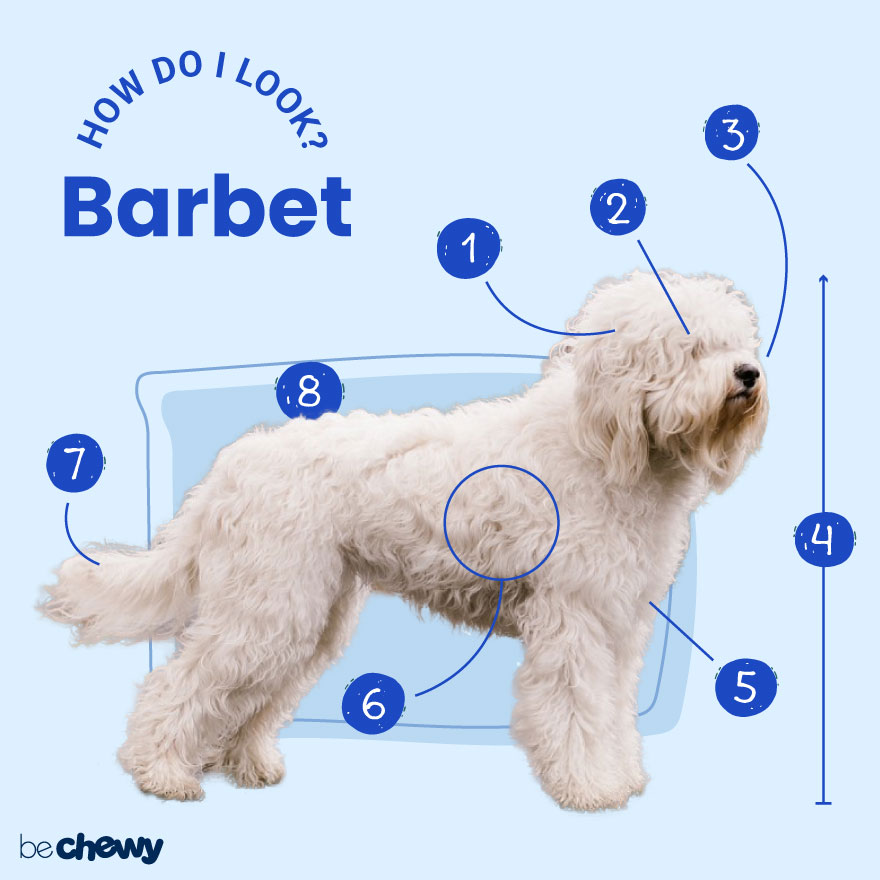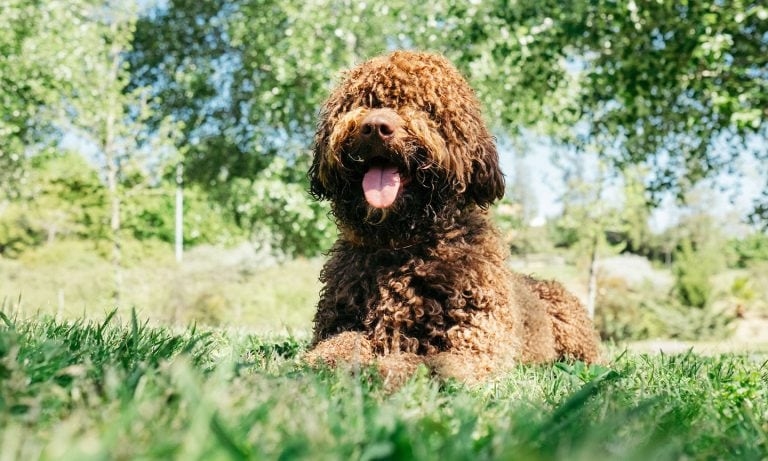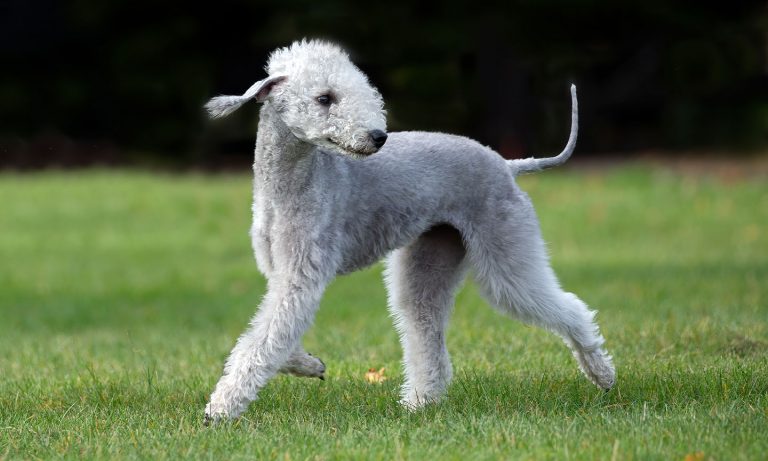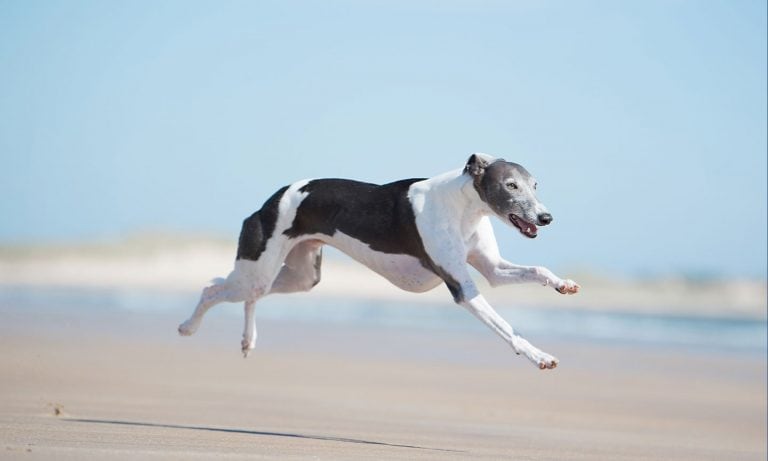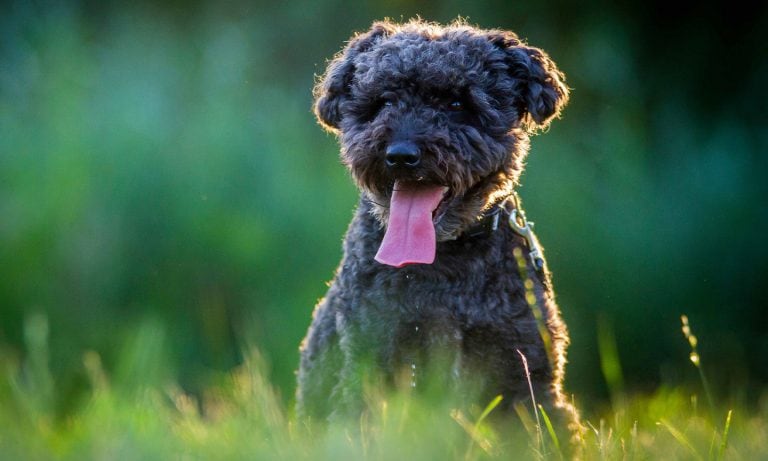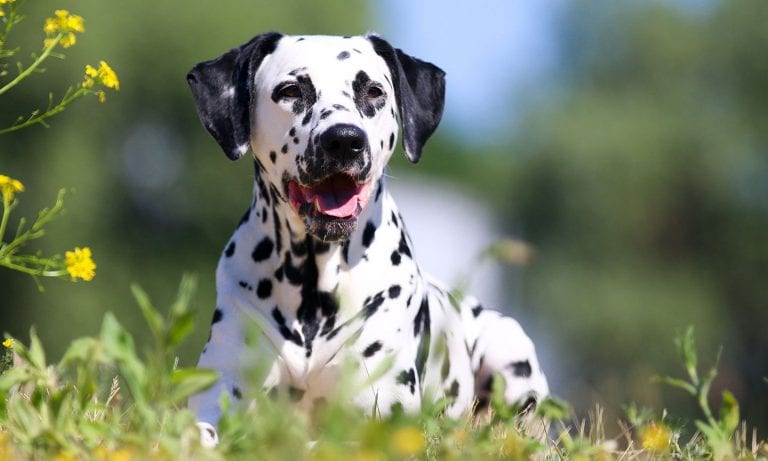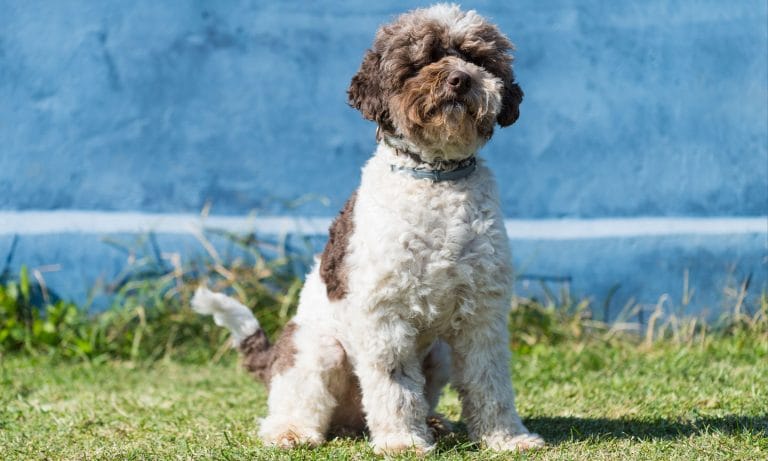Barbet (pronounced bar-BAY) are a rare French water dog breed (How rare? There are about 1,000 registered with the American Kennel Club) who love three things: you, the water and making new friends. And they may just pass out if the day’s adventure includes all three! These high-energy pups are up for a hike near a stream or some time at the beach with a game or two of Frisbee thrown in. If you’re ready to play, explore and entertain, you’ve found your perfect companion.
Breed Snapshot
Temperament:
IntelligentSocial ButterflyLoyalCoat Color:
BlackBrownGrayFawnWhite
Best For
Loyal and friendly, Barbet dogs are social butterflies who love to make new friends. So, they thrive with active pet parents and families willing to bring them on adventures (bonus points if water is involved), as well provide plenty of socialization, training and playtime.
Barbet Temperament
The Barbet dog’s personality is friendly and sociable. They’ll try to make friends with everyone they meet—both two- and four-legged newcomers. The breed is not known for aggressive or biting traits, especially when you are dedicated to training and socializing your Barbet puppy. Barbet are also not terribly barky, so they’ll alert you when someone’s at the door, but they won’t bark at every leaf that blows up onto the doorstep.
With their high energy level, they make great playmates for kids and do well with other dogs. And they’re likely to get along with cats if raised together from puppyhood. However, they were bred to be bird dogs, so they don’t mix well with birds in the home.
This intelligent breed aims to please their family but can get into trouble when bored. Mental stimulation and regular exercise is essential to keeping your Barbet a well-behaved member of the family. (You weren’t planning on using your new kicks as a chew toy for your puppy, were you?)
The Barbet dog was bred to be a solid and strong hunter and tireless swimmer—they have the webbed feet to prove it! They’ve even earned the nickname “Mud Dog” because they so often find themselves drawn towards mucky, swampy water.
Their social nature extends to exercise time. Don’t plan on putting your pup out in the backyard by their lonesome—running around by themselves won’t cut it for this breed! Barbets enjoy a variety of activities from running and swimming to dog sports like agility, rally, dock diving and lure coursing (chasing a lure around a track).
Despite their high exercise needs, once you wear out your Barbet, they’re happy to hang out with you. That’s the essential thing with a Barbet—they really just want to be wherever you are and do whatever it is that you’re doing.
How to Care for a Barbet
Barbet dogs have moderate care needs. They hardly shed at all, but their coat requires daily brushing and regular trimmings. These are high-energy pups, which means you’ll be spending a lot of time exercising this working dog. However, they’re not too difficult to train, so you’ll be able to spend a lot of time teaching your pup that new trick you saw on Tiktok.
Barbet Health
The Barbet breed has a life expectancy of 12-14 years and is relatively healthy with few medical issues. But knowing what health conditions they can suffer from may help you give your furry friend the best care possible.
- Hip and Elbow Dysplasia: Hip and elbow dysplasia are conditions that occur when the affected joint doesn’t develop properly. This may lead to the bones rubbing, grinding or popping out of place, causing discomfort and pain for your dog. These genetic disorders can be confirmed with an X-ray. Symptoms for hip dysplasia include “bunny hopping,” difficulty getting up or reduced activity. Symptoms for elbow dysplasia include limping, puffy elbows or front paws pointing outwards. Treatments for hip and elbow dysplasia may include weight reduction, exercise restriction, physical therapy, supplements, anti-inflammatory medications or surgery.
- Progressive Retinal Atrophy (PRA): This degenerative disease affects a dog’s photoreceptor cells in the retina, eventually causing blindness. PRA usually starts with night blindness. There is no effective treatment for PRA, but it’s usually not painful, and most dogs can adjust to vision loss.
- Seizure Disorders: While there are many causes for seizures, the most common cause of seizures in dogs is idiopathic epilepsy, an inherited disorder without a known cause. Once a dog has been diagnosed with a seizure disorder, a vet may recommend that they go on anticonvulsant medication to help manage the disorder.
- Allergies: If your dog licks incessantly, is constantly rubbing their face or getting ear infections, it could be a sign they have allergies. The good news is that allergies are usually manageable. Your vet can help you discover what your pup is allergic to and, depending on the type and severity, may recommend medications or changing their diet.
Barbet History
The Barbet gets their name from their distinctive beard, or barbe in French. These water-loving pups were first mentioned in 16th century France as a dog who was bred for hunting water game and were used to locate, flush and retrieve birds.
The Barbet is often thought to be one of the breeds that make up popular dogs like the Poodle, Bichon Frise, Briard and the Newfoundland.
The Barbet is a rare breed. After almost completely disappearing after both World Wars, this French water dog is making a slow comeback thanks to the efforts of dedicated breeders around the world. They first came to the United States in the fall of 2000, and the American Kennel Club recognized the breed in January 2020 as their 194th breed.
Are you interested in raising a Barbet? Be prepared to be patient; these pups are rare, so you may have to wait up to a year to find your BFF. You can find a list of reputable breeders on the American Kennel Club’s website. What’s the average Barbet puppy price? Depending on the breeder, expect to spend $2,500–$4,000. But for that price, you’re likely getting a Barbet puppy who’s been screened for health and temperament issues and may come with pedigree papers. Because this pup’s so rare, it’s uncommon to find this breed in a rescue or shelter.
FAQs
How do you pronounce Barbet?
The origin of the Barbet’s name is from the French word meaning beard and is pronounced bar-BAY.
Do Barbets shed?
Barbets barely shed at all. In fact, they’re considered a hypoallergenic dog breed and are a great choice for people who suffer from allergies.
Are Barbets good family dogs?
Yes, Barbets are good family dogs. They’re friendly, social and get along well with children.
Are Barbets rare or extinct?
Barbets are a rare breed that almost ended up in the canine history books after both World Wars but are making a comeback. There are about 500 pups currently registered with the AKC.
Do Barbets bark a lot?
Barbets don’t typically bark unless they have reason to, so they make good watchdogs. Pro tip: If your Barbet is barking a lot, they might be bored and need more physical exercise or mental stimulation.
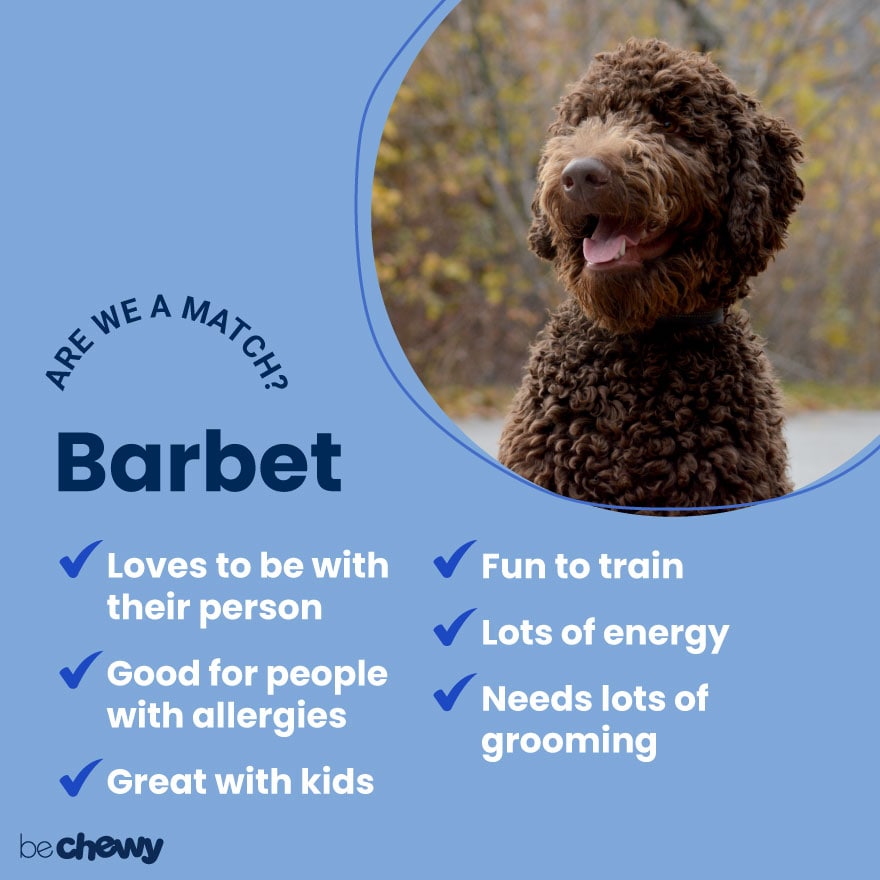
Top Takeaways
Barbets are a loyal breed who’s up for any adventure, whether that’s a swim or a hike, as long as they get to be with you. They are intelligent and easy to train, making them a great choice for someone looking for their first pet. Barbets do well with kids of all ages and are an excellent family dog. They don’t shed, making them a great choice for allergy sufferers, but they do require frequent grooming.
Expert input provided by Dr. Mandy Boos, DVM at Laurel Veterinary Clinic in Broomfield, Colorado; and Russell Hartstein, CDBC, CPDT-KA, and founder of Fun Paw Care in Los Angeles, California.
Breed characteristic ratings provided by Dr. Sarah J. Wooten, DVM, CVJ, a veterinarian at Sheep Draw Veterinary Hospital in Greeley, Colorado; dog trainer and behavior consultant Irith Bloom, CPDT-KSA, CBCC-KA, CDBC, owner of The Sophisticated Dog, LLC, in Los Angeles; and certified animal behavior consultant Amy Shojai, CABC, in Sherman, Texas.
The health content was medically reviewed by Chewy vets.
Photo credit for “How do I look?” by American Barbet Blog.
Female Names
- Chispa
- Birdie
- Belle
- Lizzie
- Tessi
- Douce
- Rowan
- Luna
- Annie
- Yofi
Male Names
- Pierre
- Cosmo
- Bash
- Hugo
- Ollie
- Finn
- Huckleberry
- Brewster
- Kirby
- Logan
Share:
